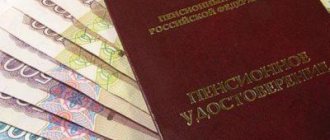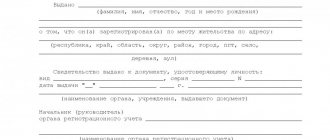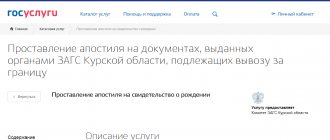In what cases is a certificate of return to the Russian Federation required?
You need to fill out this document if you have lost your passport, but you need to get back to Russia.
The entry certificate is temporary. This act is used to verify the identity of a citizen and confirms affiliation with a particular state. The document reflects the data and pastes a photograph of a specific person. The certificate is used to cross the borders of Russia and get back home.
There are several situations when you need to issue such a document:
- if during a stay in a foreign territory the person has lost his passport;
- authorized bodies of a foreign state refused to issue a foreign passport;
- completion of the period of validity of an identity document while abroad (the same rule applies if the document has become unusable).
The basis for registration by persons who do not have citizenship or refugees will be the loss of documentation confirming these statuses. In addition, the reason may be expressed in the expiration of the period of validity of such acts or rendering them unfit for use.
Where to apply for a certificate of entry to return to the Russian Federation
A certificate of entry to return to the Russian Federation is issued at Russian consular offices abroad or at a diplomatic mission in another state. The application must be submitted only in person.
Remotely, i.e. The certificate cannot be issued by fax, mail or e-mail, only in person.
If at the time of the occurrence of the need to prepare this document and the citizen is in the place where the Consulate is located, then he needs to get to the Consulate and submit an application only there. Other institutions do not deal with this issue.
Who can apply for the document
There are several groups of citizens who can receive such a certificate. These include:
- Citizens of Russia who are outside the territory of the Russian Federation have lost their identity document. This means the loss of a foreign passport.
- Persons with citizenship of the Russian Federation who are outside the state. At the same time, the international passport cannot be used in the future due to its unsuitability or its validity period has expired.
- A citizen of the Russian Federation who lives outside the territory of Russia. In this case, it is understood that the authorized bodies refused to issue a foreign passport to the person. The grounds used are that the rights to enter the Russian Federation are temporarily limited.
- Someone who does not have citizenship in Russia, or a person who has refugee status. Such persons have lost the document that certifies their refugee status. In addition, the basis for extradition will be the fact that the period of validity of such an act has ended.
The certificate may only be used on a temporary basis. This act will be required for the listed categories of citizens to enter the territory of Russia. Legislative provisions provide rules in accordance with which this document is drawn up.
To submit documentation to receive a certificate, you will need to wait in line. It will not be possible to make an appointment with authorized organizations.
What kind of document is this
Russian legislation contains many rules aimed at protecting Russian citizens who find themselves in unpleasant situations abroad. One of them is issuing a temporary certificate, on the basis of which it is possible to return to your homeland. This document is called a certificate of entry or return to the Russian Federation, and is issued at embassies operating outside the country.
Although the document is temporary, if you look at the description of the certificate of return to the Russian Federation form, you can see that it has a unique number, date of issue and validity period, and marks from Russian government agencies. Therefore, at the border, when buying tickets, and even when moving around a foreign country, such a paper will replace an identity card, and claims will not be made against a person due to the lack of a foreign passport.
Where to go to apply
To register, you will need to contact the Russian consulate or diplomatic mission. These bodies are located on the territory of foreign states. An important point is that you can submit an application only with a personal visit of the interested person.
This indicates that the design option is not permitted when using fax or electronic communication. If a situation arises that requires the execution of an act, you will need to find its location in another country and visit it during reception hours. There are no other receiving options.
Package of documents
In order to draw up the act in question, you will need to collect certain documentation. You can point out that there is a basic list of acts, that is, those that all citizens need to collect.
General list and requirements for them
The list of acts for obtaining a certificate includes:
- A document issued by the internal affairs agency of the country in whose territory a person lost his passport. This paper is used to confirm the fact of loss or damage to the passport.
- Photos. You need to do three things. A certain size is set - 35*45mm.
- Papers that help determine the applicant’s identity and his address of residence within his home country. This may be a copy of an internal act, the use of which verifies the identity of a citizen. If there is no such documentation, then you need to make copies of citizens’ statements that can confirm their identity. Applications are made in written format. Certification is carried out when contacting a notary office.
The certificate is issued only after the consular officer receives all the necessary documentation. He should have no doubts about what kind of citizen is in front of him. Also, in order to confirm citizenship to the country, requests may be made. They are sent to the migration service.
A certain period of validity of the act in question has been established. It is indicated that a person can use the certificate only for 10 days. The countdown starts from the moment the act is issued. Paper is used when passing control when crossing the border.
After a person enters the country, he will need to submit a certificate within three days. For this purpose, they contact the authority that issued it.
For minors
If we talk about what documentation will be required if it is necessary to confirm the identity of a child, then it is worth considering that the package of papers will be drawn up differently.
It includes:
- Statement. It will need to be compiled in a single copy. This can be done using a computer or with your own hands.
- Photos. In this case, you will need a photo of not only the minor, but also his legal representative. You need to take a couple of photos. Certain requirements have been established: you can only take photographs from the front and use a size of 35 by 45 mm. Color photographs are not allowed. All photos must be identical.
- An act confirming the fact of the birth of a child. In relation to persons who perform the functions of guardians and trustees, a requirement has been established to provide documents confirming their rights to children.
- Documentation indicating the child’s citizenship to Russia. For those who are in the age category from 14 to 18 years old, a passport is required.
- Passport for the legal representative. At the same time, this act must be valid.
The authorized bodies generate the certificate within the established time frame. If it is necessary to send a request to the FMS, the production period increases.
Necessary documents for registration of START
To obtain a certificate, you must appear in person at the consular department, bringing with you the following documents:
- A document (protocol, certificate, etc.) issued by the internal affairs agency of the country where the international passport of a citizen of the Russian Federation was lost or expired, confirming the fact of an application regarding the loss of the passport;
- 3 color photographs measuring 3.5 x 4.5 cm;
- Documents (allowing you to establish the identity of the applicant and his place of residence in the Russian Federation, copies of the OPP and internal passport). In the absence of these documents - notarized written statements of at least two citizens of the Russian Federation confirming the identity of the applicant and presenting valid OPP;
- Fill out an application.
The certificate is issued after the consul receives all the necessary information about the applicant, eliminating doubts regarding his identity and citizenship of the Russian Federation.
If necessary, to confirm the presence of Russian citizenship and the fact that a passport was issued, send a request to the Federal Migration Service of Russia.
On the territory of the Russian Federation, a certificate with a border checkpoint stamp can be used by a Russian citizen within 10 days from the moment he crosses the state border as an identification document.
A citizen of the Russian Federation who has received a certificate, within 3 days from the moment of arrival at the place of stay or place of residence within the Russian Federation, is obliged to hand over the certificate to the organization that issued the lost passport.
Important!!! The certificate is issued free of charge.
When will the certificate of return to the Russian Federation be ready?
The processing time will increase if additional checks by the migration service are needed.
Registration of documentation takes about one or two days. In some situations, these deadlines may be subject to change. The reason for this is that there is a need for additional actions. They are implemented in order to confirm the presence of citizenship in the Russian Federation.
In such a situation, authorized bodies formulate a request to the migration authorities. Then the period for preparing the act in question increases to 27 days. It is important to note that it may be necessary to urgently issue this act. Then the situation will be considered separately and the document can be produced on the day of application.
For example, this happens when a person is in serious condition due to illness, etc.
Reasons for refusal to issue a document
They do not always agree to draw up the act in question. The grounds for refusing extradition are provided:
- if a person does not comply with the rules established regarding the preparation of documentation necessary to obtain a certificate;
- lack of citizenship to Russia;
- the status of a refugee or stateless person has not been formalized.
In the first situation, the citizen will be offered additional time to eliminate all shortcomings. Then a repeated application to the authorized body is allowed.
State duty
- For issuing a certificate of return to the Republic of Armenia in case of loss of a passport and absence (if not provided) of another document identifying the citizen of the Republic of Armenia (military ID, identification card) - 4,500 rubles.
- For issuing a certificate of return to the RA on the basis of an expired or unusable passport or on the basis of another document identifying the citizen of the RA (military ID, identification card) - 1,500 rubles.
- For issuing a certificate of return to the RA in cases established by the government of the RA, as well as in cases provided for by international treaties of the RA - Free
*Payment of state fees is carried out through payment terminals on site - in cash or by bank card.
Do I need to report the loss of my passport?
In this case, it can be noted that the current legal provisions do not contain an obligation for a person to report that he has lost his foreign identity card. This rule concerns the fact that a person, while outside the country, may not visit the local internal affairs authorities and not write a statement about the loss.
However, in practice it all comes down to the fact that this needs to be done. The reason for this is that fraudsters or other criminals can perform transactions with a lost passport. In this case, the owner of this act may subsequently get into many problems with the laws of a foreign state.
To avoid trouble, you must report it immediately after discovering a loss. There are several variations of organs where you can contact for this purpose. For example, speaking of Porto, this is the tourist police. In some cities, it is enough to visit the nearest law enforcement agency.
Legislative framework of the Russian Federation
not valid Edition from 23.09.1999
detailed information
| Name of document | DECREE OF THE RF GOVERNMENT OF 01.10.98 N 1142 (as amended on 23.09.99) “ON THE IMPLEMENTATION OF SOME NORMS OF THE FEDERAL LAW “ON THE PROCEDURE FOR EXITING FROM THE RUSSIAN FEDERATION AND ENTRYING INTO THE RUSSIAN FEDERATION” |
| Document type | decree, list, regulation |
| Receiving authority | Russian government |
| Document Number | 1142 |
| Acceptance date | 01.01.1970 |
| Revision date | 23.09.1999 |
| Date of registration with the Ministry of Justice | 01.01.1970 |
| Status | It does not work |
| Publication |
|
| Navigator | Notes |
DECREE OF THE RF GOVERNMENT OF 01.10.98 N 1142 (as amended on 23.09.99) “ON THE IMPLEMENTATION OF SOME NORMS OF THE FEDERAL LAW “ON THE PROCEDURE FOR EXITING FROM THE RUSSIAN FEDERATION AND ENTRYING INTO THE RUSSIAN FEDERATION”
REGULATIONS ON THE CERTIFICATE OF ENTRY (RETURN) TO THE RUSSIAN FEDERATION
1. This Regulation, developed in accordance with part one of Article 11 of the Federal Law “On the procedure for leaving the Russian Federation and entering the Russian Federation,” regulates the procedure for issuing a document giving a citizen of the Russian Federation the right to enter (return) to the Russian Federation in the event of loss them passports (diplomatic passport, service passport, seaman’s passport) outside the Russian Federation.
2. If a citizen of the Russian Federation has lost his passport (diplomatic passport, service passport, sailor’s passport), he is issued a certificate of entry (return) to the Russian Federation (hereinafter referred to as the certificate) in the form according to the appendix.
3. The certificate is a temporary document identifying the citizen of the Russian Federation and giving him the right to enter (return) to the Russian Federation.
Certificate forms are strictly accountable documents.
4. The certificate is issued by a diplomatic mission or consular office of the Russian Federation upon a written application from a citizen of the Russian Federation for the period necessary for entry (return) to the territory of the Russian Federation, but not more than 15 days, against signature.
5. When applying for a certificate, the applicant submits:
a) a document (protocol, certificate, etc.) issued by the competent authority of the host country, confirming the fact of his application regarding the loss of a passport (diplomatic passport, service passport, seafarer’s passport);
b) a statement of the established form;
c) 2 photographs;
d) documents allowing to identify the identity of the applicant, establish his place of stay or place of residence within the Russian Federation and confirm the citizenship of the Russian Federation (military ID, service ID with photo, driver’s license, etc.), or written statements certified in the prescribed manner of at least 2 citizens of the Russian Federation, confirming the identity of the applicant.
6. When the applicant submits the documents specified in paragraph 5 of these Regulations, a certificate may be issued without additional verification of his identity.
In this case, on the reverse side of the certificate, an entry is made in Russian: “This certificate was issued in replacement of a lost passport (diplomatic passport, service passport, seaman’s passport) on the basis of...”, after which the document on the basis of which the certificate was issued is indicated. The entry is sealed and signed by the official of the diplomatic mission or consular office of the Russian Federation that issued the certificate.
7. If the applicant does not have documents confirming his identity, citizenship of the Russian Federation, place of stay or place of residence within the Russian Federation, the diplomatic mission or consular office of the Russian Federation sends a corresponding request to the passport and visa service of the internal affairs bodies for verification. Russian Federation.
In urgent cases, a request may be sent by a diplomatic mission or consular office of the Russian Federation directly to the Ministry of Internal Affairs of the Russian Federation.
Based on the results of the inspection, the internal affairs bodies of the Russian Federation send the necessary information to the Ministry of Foreign Affairs of the Russian Federation with reference to the outgoing request number of the diplomatic mission or consular office of the Russian Federation.
8. When issuing a certificate, the applicant must be informed that within 3 days from the moment of arrival at the place of stay or place of residence within the Russian Federation, he is obliged to submit the certificate to the organization that issued the passport (diplomatic passport, service passport, seaman’s passport ), lost by a citizen of the Russian Federation.
On the territory of the Russian Federation, a certificate with a border checkpoint stamp can be used by a citizen of the Russian Federation within 10 days from the moment he crosses the state border of the Russian Federation as an identification document.
9. If a certificate is issued to a person on the wanted list declared by Russian law enforcement agencies, the diplomatic mission or consular office of the Russian Federation immediately informs the Ministry of Foreign Affairs of the Russian Federation about this fact, the possible date and place of crossing the state border of the Russian Federation by the specified person.
10. A certificate may be issued to a stateless person permanently residing on the territory of the Russian Federation upon the instructions of an authorized official of the Consular Service Department of the Ministry of Foreign Affairs of the Russian Federation. In this case, the diplomatic mission or consular office of the Russian Federation issues a visa to stateless persons to enter the Russian Federation.
11. The procedure for recording and storing certificate forms is determined by the regulatory legal acts of the Ministry of Foreign Affairs of the Russian Federation.









